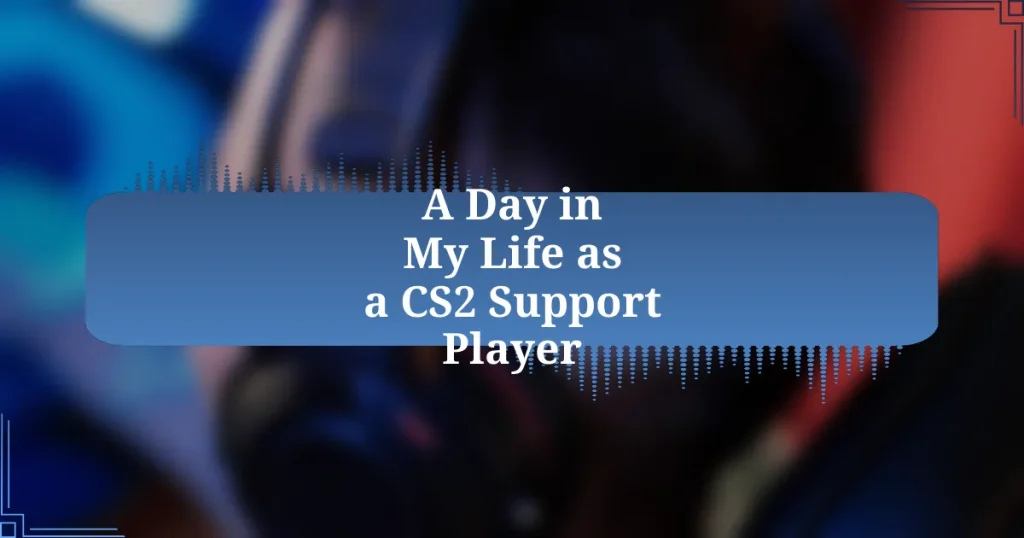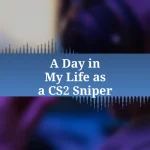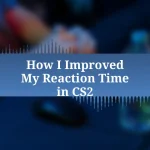Key takeaways:
- Support players play a crucial role in team success, focusing on collective achievements rather than individual accolades.
- Effective communication and utility usage, such as timed flashbangs and strategic smoke deployments, can significantly influence match outcomes.
- Balancing personal performance with team support is challenging, requiring adaptability and awareness of teammates’ playstyles.
- Maintaining team morale through open dialogue and understanding dynamics is essential for overcoming challenges during matches.
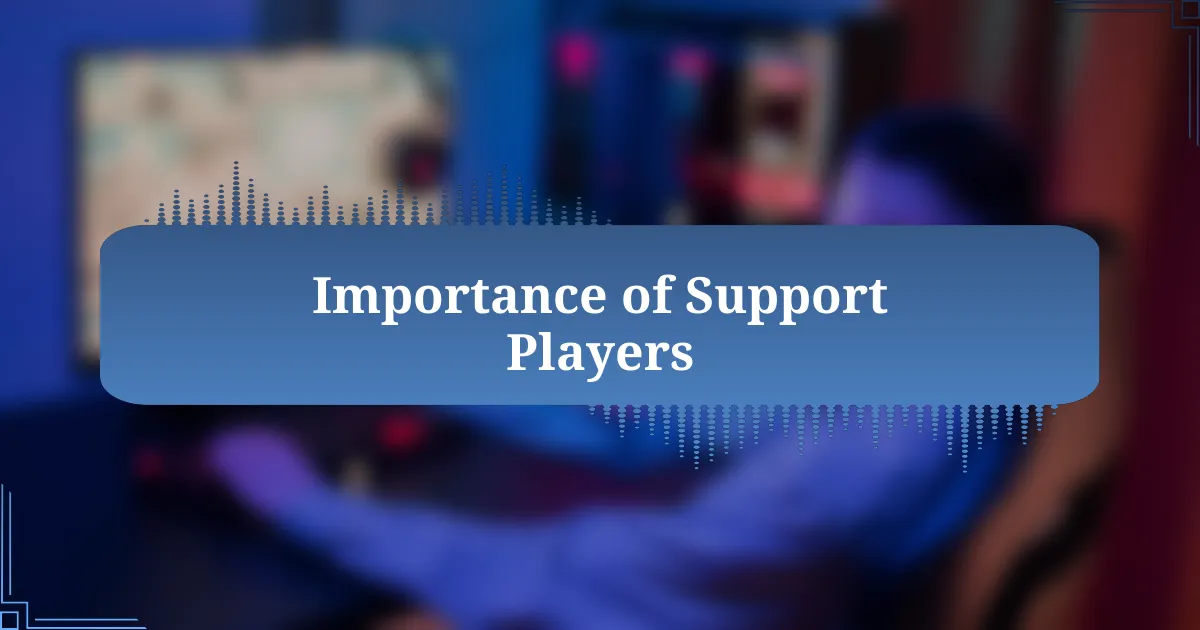
Importance of Support Players
Support players are often the unsung heroes in CS2, quietly orchestrating victories from the shadows. I remember a match where I made a crucial call to save my team by holding back to cover our bomb planter. It was nerve-wracking, yet knowing that my positioning directly contributed to our win felt exhilarating.
Being a support player demands a unique understanding of the game, where focus shifts from individual glory to the collective success of the team. Have you ever watched a game and wondered how that one player holding the smoke grenade could change the tide? I’ve been in situations where a well-placed smoke not only saved lives but also secured critical map control, illustrating the power of strategic thinking.
Moreover, the emotional weight of being a support player cannot be understated. It requires patience and resilience, especially during those tough moments when the team might not see your efforts. I’ve felt the frustration of teammates who overlook the impact of utility usage, yet I’ve learned to find pride in knowing that I help create opportunities for others to shine. It’s a tough role, but one that builds incredible teamwork and makes every victory feel like a shared triumph.
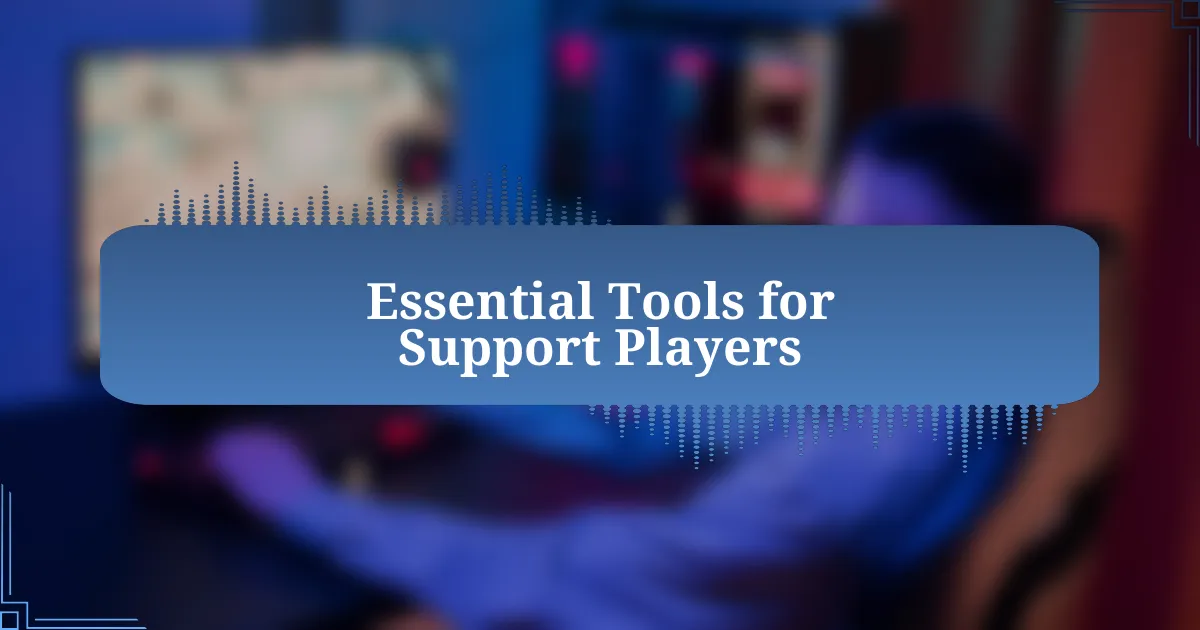
Essential Tools for Support Players
Support players rely heavily on specific tools to amplify their impact in a match. For me, having a perfectly timed flashbang can turn the tide of an encounter. I remember a pivotal moment where I threw a flash that blinded two opponents, allowing my team to push through without taking any damage. It was like giving my team a green light, and the thrill of that moment lingered long after the round ended.
Another crucial tool is communication. I often use voice chat to call out enemy positions or strategize with teammates on our next moves. It’s fascinating how a simple “They’re pushing A!” can spark immediate action and shift our plans on the fly. Did you know that effective communication can reduce misplays significantly? In my experience, teams that communicate well not only perform better but also foster a sense of trust and connection that feels almost palpable.
Utilizing the minimap effectively is something I’ve honed over countless games. I make it a habit to check it frequently, guiding my teammates based on the visual cues it provides. There was a tense situation where I spotted an enemy flanking us and alerted my team just in time. It’s moments like these that remind me how powerful awareness and positioning can be, especially in high-pressure scenarios. For support players, familiarity with their tools can truly make a game-changing difference.
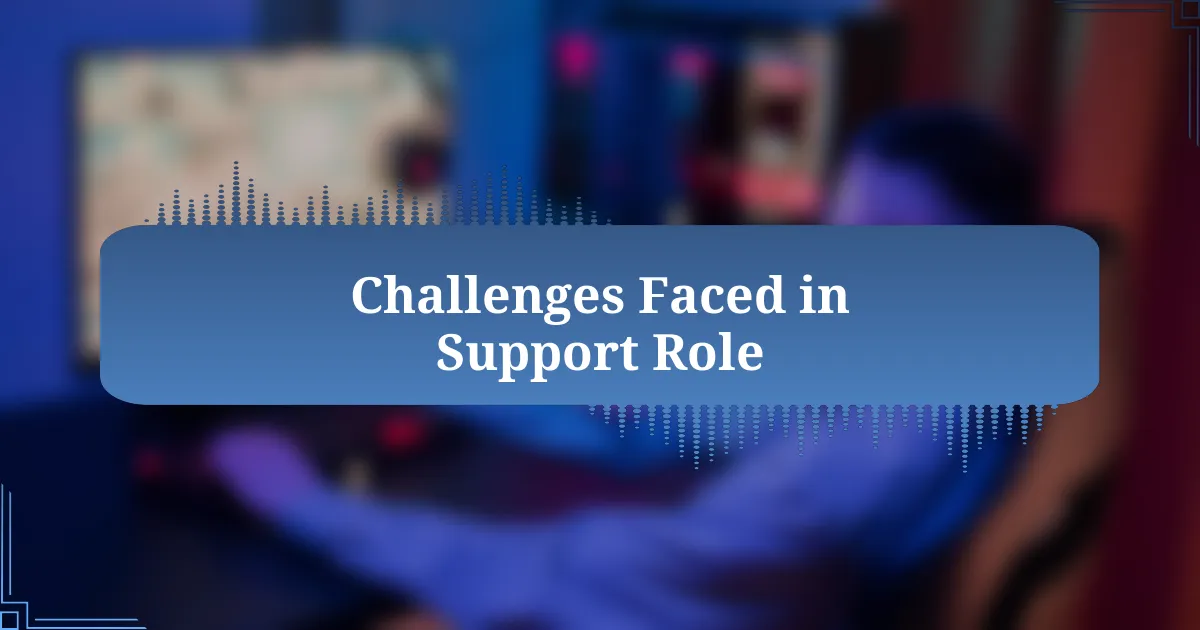
Challenges Faced in Support Role
One of the primary challenges I face as a support player is dealing with the pressure of carrying my team’s expectations. There are times when I feel this weight—like during a critical match when every teammate is counting on me to hold my ground and provide the necessary intel. It’s an intense moment, especially when I realize that a single wrong call or misstep could potentially cost us the game. Has this ever happened to you? Balancing that anxiety with the need to remain calm and focused is a tightrope walk I continually navigate.
Another hurdle is maintaining my own performance while supporting others. I vividly recall a game where I dedicated my time to watching a teammate’s back, only to find myself out of position when the enemy struck elsewhere. That feeling of helplessness, knowing I couldn’t contribute effectively at that moment, was tough to swallow. It made me reflect on the importance of being adaptable and remembering that my own skills still matter just as much.
Finally, team dynamics can be unpredictable, leading to friction when not everyone is on the same page. A standout moment was during a heated match when I suggested a new strategy, but some teammates resisted. The frustration was real; it felt like I was shouting into the void. Working through those moments requires patience and sometimes a willingness to compromise, ensuring that everyone’s voice is heard while moving toward our common goal. How do you manage your team’s morale in those tense situations? For me, fostering open dialogue is crucial to overcoming that challenge.
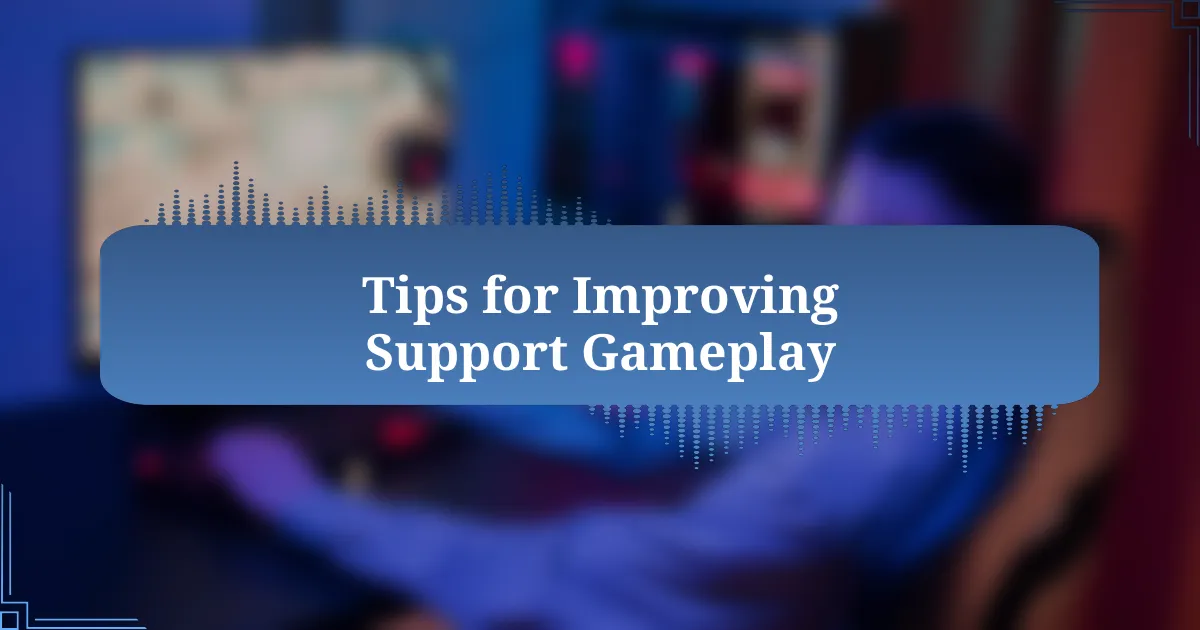
Tips for Improving Support Gameplay
Fostering good communication is essential for a support player. I remember a match where we were on a tight map, and I took the time to voice callouts instead of just pinging locations. The clarity we gained from that was incredible; it not only helped us coordinate defenses but also eased my teammates’ anxieties. Have you ever noticed how a simple phrase can change the flow of a game? It reinforces the importance of being the voice that guides the team through chaos.
Another effective tip is to master your utility usage. There was a time when I saved my smoke grenade too long, only to have the enemy push through right when we needed it. I felt the weight of that mistake. Now, I prioritize learning the best moments to deploy my grenades, whether it’s blinding foes before a rush or blocking sight lines for a teammate. Managing your utility can profoundly impact your team’s success—wouldn’t you want to be the one who turns the tide?
Finally, understanding your teammates’ play styles can significantly enhance your performance. I learned this when I teamed up with a player who thrived on aggressive plays. I adjusted my support tactics to follow their lead, setting them up for flanking maneuvers. It was enlightening to see how synergized gameplay could elevate our performance. Reflecting on your team’s dynamics, can you pinpoint which styles work best together? Emphasizing that synergy can make your support role not just effective, but enjoyable.











